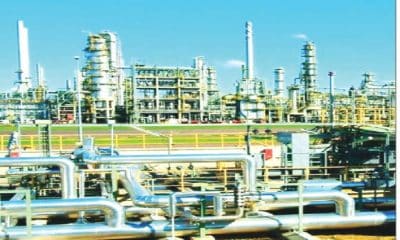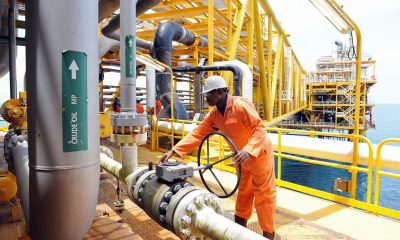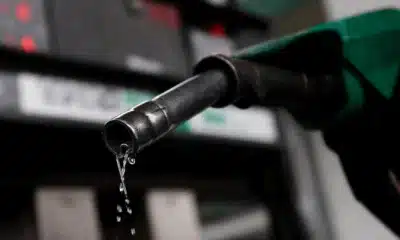Business
Fuel Scarcity: Port Harcourt Refinery To Commence Operations Q2, Warri, Kaduna For Repairs – NNPCL Reveals

Amidst the persistent fuel scarcity characterised by long queues across the federation, the Nigerian National Petroleum Company Limited (NNPCL) has disclosed that the Port Harcourt refinery will start operations by the second quarter (Q2) of 2023.
According to the national oil company, two others, the Warri and Kaduna refineries, have also been contracted for quick rehabilitation.
Naija News learnt that the development was shared by the Executive Vice President, Danladi Inuwa, on Wednesday at a workshop sensitisation programme with The Natives, a civil society organisation in Abuja.
Inuwa said he was optimistic that the rehabilitation of three refineries in the country would reduce the incidences of fuel scarcity when completed.
He said “We are working to revamp our refineries. For instance, the Port Harcourt refinery will be functioning by the second quarter of 2023. Area five of the refinery will be functioning. Also, Warri and Kaduna refineries will have been signed on a quick rehabilitation to refine our petroleum product in the country.”
Inuwa submitted that being a limited liability company has helped in the investment of infrastructure and as well initiate diverse corporate responsibility initiatives to increase development and attain energy security.
The NNPCL executive vice president advanced that “We have the mandate to ensure energy security for the nation. We are focusing on monetising our gas which is evident in some of the key projects like the AKK project. This is all done to ensure NNPC is fulfilling its mandate and spurring development.”
He was responding to the reservations made by the president of The Natives, Olalekan Edwards, who raised some concerns about citizen participation in influencing key project decisions in host communities
Edwards advocated that the narrative needed to change from protests to participation in key decision processes.
In his address, he noted, “The accurate picture here is we want to change the narrative from protest to participation.
“We most times address them at the aftereffect of misapplication of funds or projects that are not in developmental the communities, so we have decided to rise up. If you go to different host communities, you will hear issues about their development.
“We are placing a demand. We want to begin to participate in our affairs rather than just protest.”
The programme titled, “Understanding our national oil company post-Petroleum Industry Act” was aimed at educating the public and moving citizens’ involvement from protests to participation in the decision-making process of the profit-oriented company.












